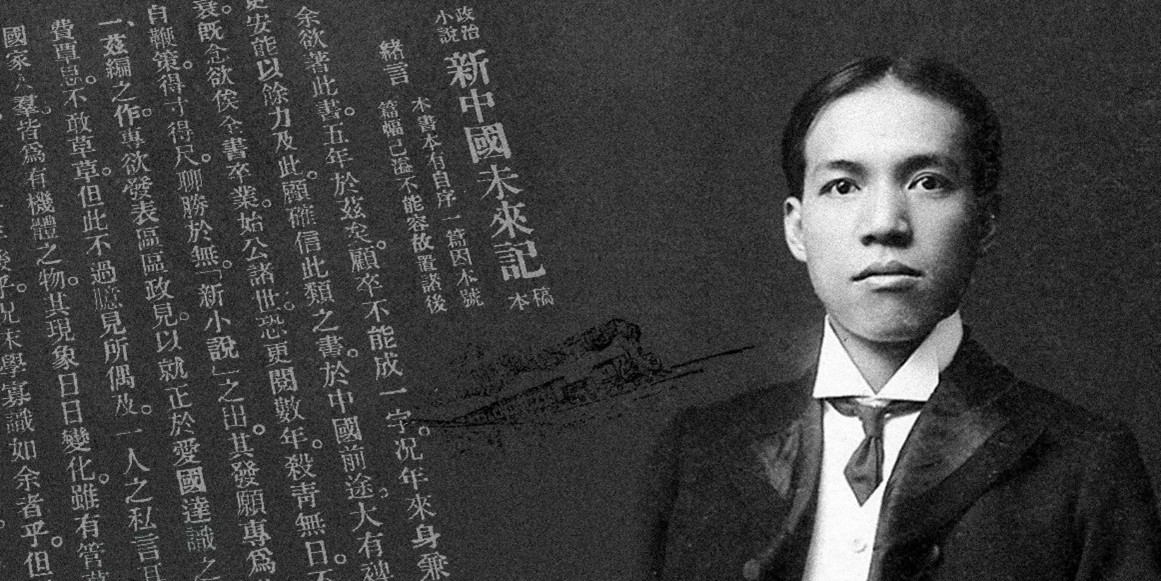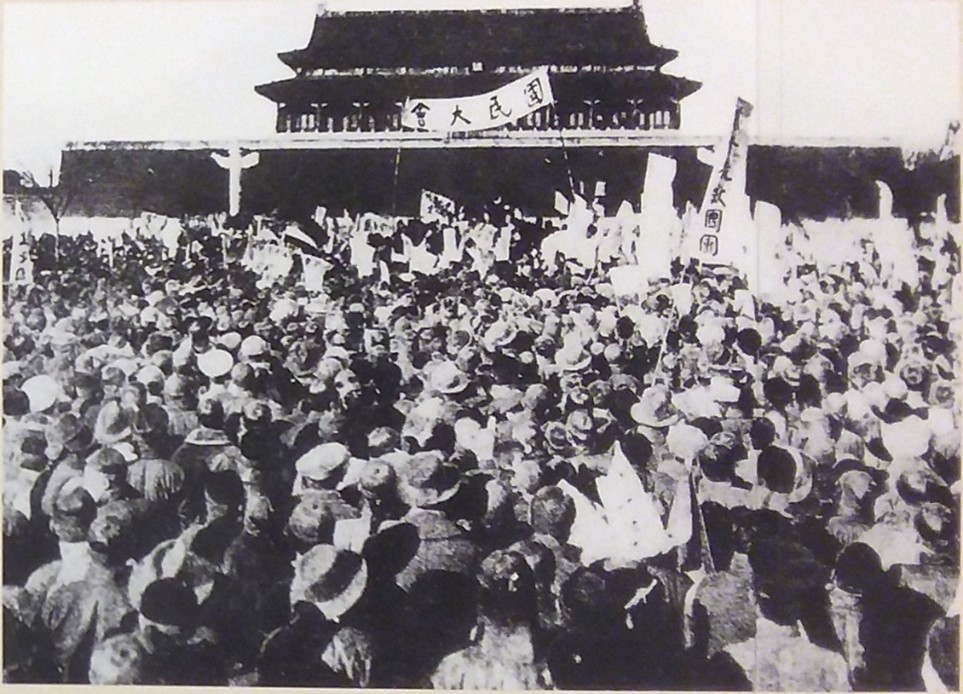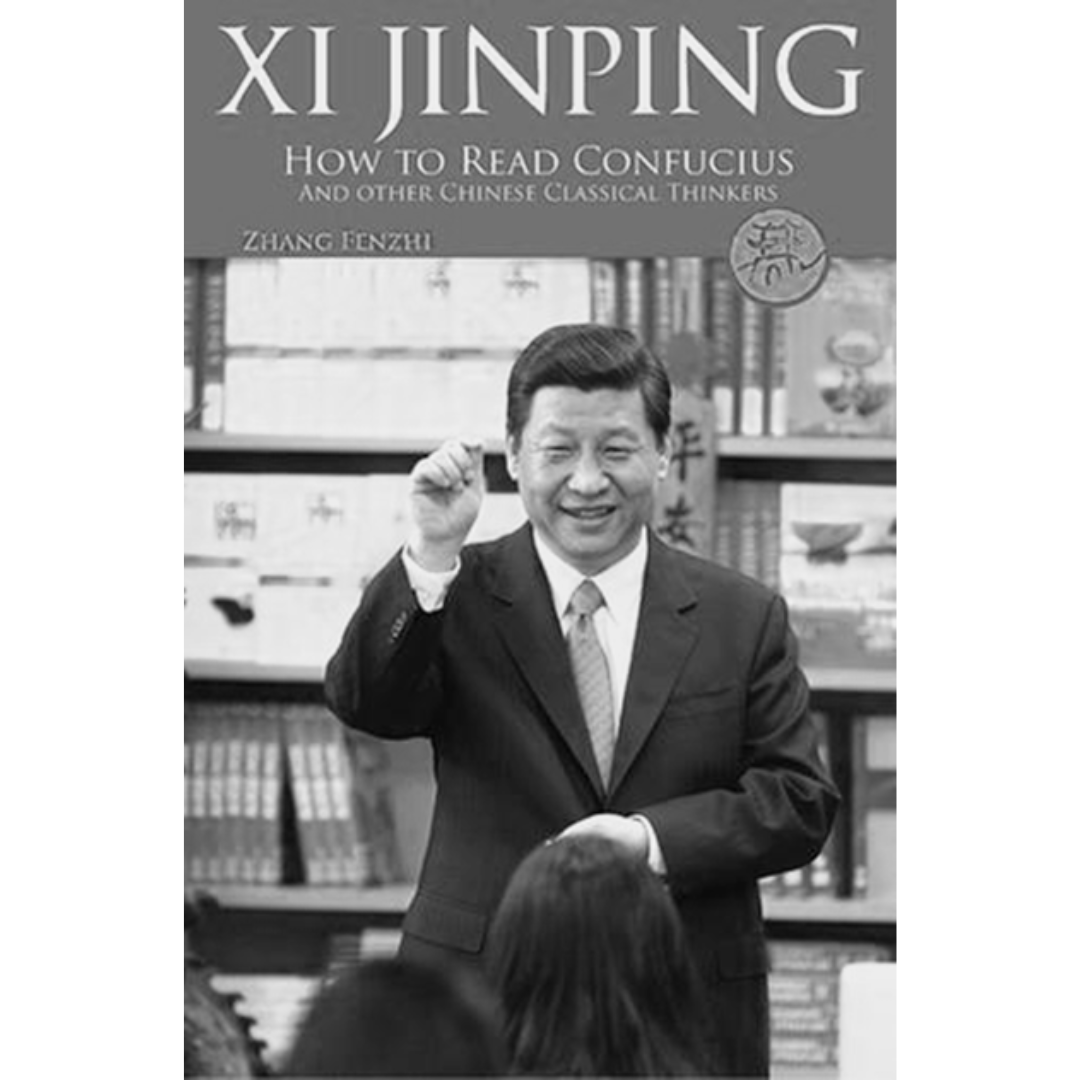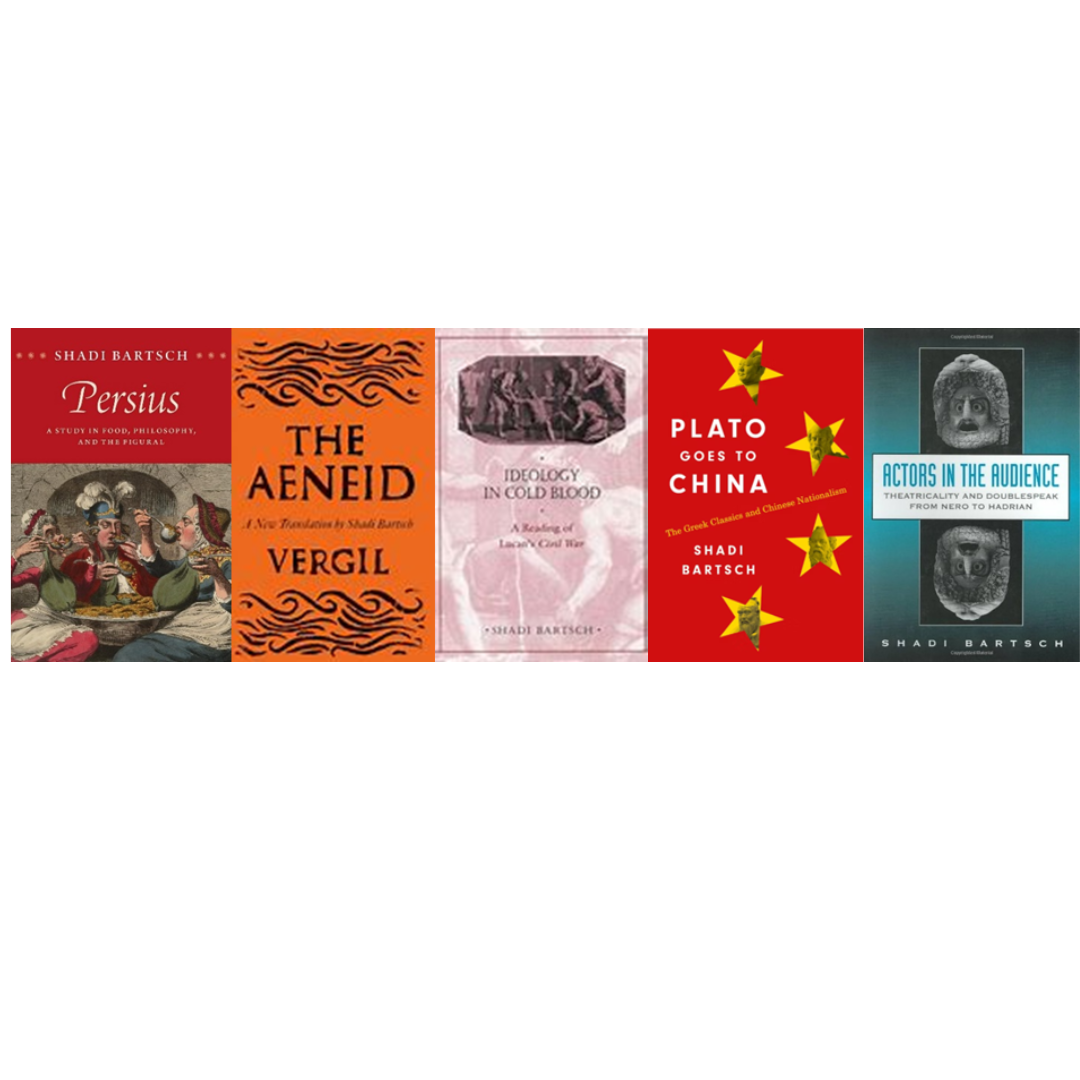How does one search for ‘Socrates’ in Mandarin characters? This was the first question I asked as I began my research on the western Classics in China, and like everything else, it turned out to be more complicated than I’d realized. After all, one cannot “spell” Socrates in a written form that doesn’t use an alphabet. And the name Socrates itself had only entered Chinese culture 150 years ago—not until near the decline of the Qing dynasty, when Chinese scholars turned to the western classical texts to search for answers to what kind of entity a new China could be. Or perhaps it was the other way round: it was upon exposure to western concepts like democracy, citizenship, and a free press that Chinese reformers began to press for a change to the millennia-long sequence of dynasties and a society governed by Confucian ethical principles. Either way, China entered the 20th century hand-in-hand with texts from the west.
I was searching for Socrates in Mandarin because I had decided to write a book on this topic: the reception of ancient western works of political philosophy among Chinese intellectuals since the defeat in the Opium Wars and the country’s opening up to the west. It was a vast subject, and in the end I had to simplify a very complex story. But the impetus to study the topic had come from a particular realization. Namely, as a Classics professor, I was to some degree studying…the texts that had already shaped the categories I used to think with. That is, I was in an intellectual hall of mirrors, not because I hadn’t encountered different cultures and texts during my life, but because I always read them from my position as a westerner, which had been shaped by my education in (mostly) western educational systems. So my question was: what if instead I looked at how an entirely new audience, the Chinese reformers of the late 20th century, had read texts by Plato, Aristotle, Thucydides, and others as new guides for political thought after millennia of largely Confucian beliefs that took for granted an emperor and his power? This group of Chinese thinkers offered a fascinating glimpse into alternative receptions of our familiar texts, and even into how interpretations could change over time: from the fall of the Qing, to the rise of the CCP, to the disaster of June 4th 1989, to Xi Jinping himself.
At the beginning of my project, even the names of my subjects offered a fascinating foray into a new system of nomenclature. Socrates, I learned, was not “So-crat-es” said very slowly and loudly (!), but the astonishing sequence of sounds, “sū gé lā dǐ” (苏格拉底). Aristotle was “yà lǐ shì duō dé” (亚里士多德). Homer was “hé mǎ” (荷马). And of course these Mandarin characters had meanings of their own before they were harnessed for use in representing Western names. Homer came out as “lotus horse,” which didn’t make much sense, even if the Iliad has horses, and the Odyssey lotuses. Noting, though, that the character for “virtue” had been used in Aristotle’s name (and also in Thucydides’), I asked a Chinese scholar if the original meaning of these characters was still felt among native speakers He replied in the negative—nor did they think of east and west when they said the word “thing” (literally, “east-west,” dōngxī). Still, I thought it was fascinating that one could translate yà lǐ shì duō dé, with a little sleight of hand, as “Asian scholar of much virtue.”
亚里士多德!
As I read more and more Chinese journals, scholarly essays, and newspapers, usually online, I learned of a group of thought-pioneers at the turn of the millennium. They literally deployed the texts of Greek antiquity (and many besides from the later western intellectual tradition, especially the Enlightenment) to imagine a new political future for China. I use the word “deployed” of the Chinese scholars reading these texts because they were literally put to use for possibilities in post-dynastic China. Figures such as the writer and reformer Liang Qichao (1873–1929) the nationalist Li Dazhao (1889–1927), and the translator Yan Fu (1854–1921), wrote about Aristotle in terms that made it clear how exciting these ideas were that came from Greek antiquity. (Chinese schoolbooks still depict western democracy as growing directly out of classical Athens, as if Greece simply birthed the U.S.; never mind 2000 years in between, never mind the Founding Fathers’ suspicion of Athenian democracy, never mind the huge differences between what Aristotle could conceive of and the reality of contemporary American politics).
These reformers were fascinated by the possible forms of government laid out in Aristotle’s Politics. These three claimed Aristotle really preferred democracy to all other forms of government, pace what the Politics actually said, or would have, modifying Aristotle’s content to employ his authority to argue in favor of democracy as the best form of government for a future Chinese republic. In reality, of course, Aristotle identified democracy as a pernicious form of government in which the poor held control and used their power for themselves, for example, by taxing the rich very heavily.
Thinking about political change required a whole new political vocabulary, and Liang Qichao introduced many new terms to his compatriots to the (new!) idea of the citizen, using the word rénmín to mean, as with the Aristotelian citizen, a person involved in the political life of their country or state. If man was a political animal, that is, a life-form that reaches fulfilment by participation in the polis, then the whole dynastic structure of China was an impediment to China’s development in modernity. It had created out of China’s people a throng of helpless slaves to the imperial court. Free inquiry, science, and intellectual collaboration, they complained, could find no place in a society where the pinnacle of education involved memorizing Confucian texts to be a court scholar. Other new terms introduced in Liang’s Discourse on the New Citizen were words like “republic,” “democracy,” “society,” “science,” “rights,” and “economy.”
Liang Qichao
These publications of these anti-dynastic thinkers—starting with Liang Qiao’s commentary and translation of a section of Aristotle’s Politics in 1898—become more widely publicized after the fall of the Qing Dynasty in 1911-12. The exposure to western texts was partially responsible for triggering the May 4h Movement of 1919, when thousands of students who felt that China had been slighted in the Treaty of Versailles took to the streets to call for “Mr Democracy” and “Mr Science.” They protested against the educational system, they linked China’s technological backwardness with Confucianism; and they demanded that the vernacular be used in print.
Although the movement fell apart in the years of civil war that followed, it would have resonance again in the 1980s, with tragic results. In the meantime, however, the victory of Mao’s communists in 1949 led to a lull in the scholarship on the classics. Mao explicitly sneered at people who cared for the wisdom of the Greeks, noting in his 1941 essay “Reform our Studies” that “There are many Marxist-Leninist scholars who cannot open their mouths without citing ancient Greece; but as for their own ancestors—sadly, they have been forgotten.” Mao had earlier commented on ancient philosophy in his work on dialectical materialism, in which he condemned Plato as an idealist and reactionary for his argument that only the Forms had any real existence! Would that such passion existed among us, as well!
The May 4th Movement
There was another flashpoint for the classics in China 70 years after the May Fourth Movement, when intellectual freedom crested in the late eighties. Deng Xiaoping had introduced his famous allegory of the white cat and the black cat as part of the “reform and opening up of China.” Attitudes towards Maoism were changing, and slowly the concerns of the May 4th movement came to be heard again on students’ and workers’ lips; western texts (including the later works of Rousseau, Voltaire, and others) were once again invoked as models for ethics. Again the demand was for freedom of speech, the rights of the citizen, a free press. But this time the government’s backlash to the massive protests of early June 1989 left thousands of dead.
Eyewitness David Moser, a student at Peking University at the time, describes the excitement before the crackdown. Stimulated by a six-part Chinese TV series that pitted the trade-crossed blue sea of classical Athens against the saffron clogging silt of the Yellow River, students and workers took to the streets. “The series’ content—a sweeping, brutally painful critique of the deep structure of Chinese culture—was the topic of conversation among many of the Peking University grad students I was hanging out with…. Seen by more than 200 million viewers, the miniseries also galvanized the general population. The People’s Daily (the official newspaper of the Central Committee of the CCP) actually published transcripts of “River Elegy,” and references to the themes of the documentary began popping up everywhere in the local newsstands.” In this unique moment of history, in the words of scholar Xu Jilin, “pressures generated by a combination of relative economic laxity and dated ideological control led to a situation in which intellectuals began to call for an accommodation between the ideas propounded by the Marxist humanists and neo-enlightenment thought.” But accommodation, in the end, was not forthcoming.
Strikingly, within a decade of Tiananmen Square, many intellectuals were singing a different tune about the “liberating value” of the western classics: the very same Aristotle and Plato that they had engaged with previously were cited as favoring the CCP’s political views—or else, depending on the text, they were denounced as not only unChinese but in some cases, against human rights. Here Aristotle in particular took a fall, with his vision of an engaged citizenry criticized as a form of “slavery for citizens” practiced in classical Athens: any man who didn’t participate in the life of the polis was discounted as a man, so one was forced to work for the government; engagement in juries and assemblies was required; and ditto in warfare. Plato, whose vision in the Republic of an ideal polis which was based on inherited intellectual merit and which involved creating a noble lie to keep everyone happy in their station, was all of a sudden understood as merely stating the obvious: hierarchy, not democracy, was the recipe for political stability. Thucydides’ famous critique of Athenian democracy—namely, that without a strong ruler, political leadership became merely a battle among demagogues to please the people—was even resuscitated for an editorial in The New York Times that boldly claimed that American democracy, too, was on the edge of a cliff—and about to tumble over into a different political situation altogether, perhaps like the oligarchy that triumphed briefly at Athens.
Now, concepts that were seen as fundamentally western also came under attack. The modern world outside the Confucian circle had been lost to “instrumental rationality,” a form of scientific and economic thought that privileged useful outcomes over the fate of the people who were used along the way. The sociologist Max Weber had already offered a similar critique of western society, and his ideas were quickly incorporated into the arguments of Chinese intellectuals. Against the “soullessness of the West,” they proffered a resuscitated Confucius who favoured the family, stability, respect, humaneness, and even sustainability. At the same time they argued that the Chinese model was superior to democracy because it included democracy at the grassroots level in villages, while looking later to merit and experience in the men that were chosen to lead. In Against Political Equality—The Confucian Case, a 2020 book by Bai Tongdong, a professor of philosophy at Fudan University, the author compares Plato’s ideal polis to a Chinese-Confucian meritocracy. His study grapples with the question of whether a Platonic or a Confucian republic would serve its citizens better. Bai’s core argument is that all societies have an honour-seeking segment for which a place must be made in any hypothetical state. In the US, that segment has focused primarily on the accumulation of wealth, which has had a corruptive effect on democratic politics. A Confucian-influenced system, however, would seek status rather than money, relying on a meritocratic politics that would provide a real alternative to American electoral democracy in combining a meritocracy at the highest levels and democracy at the lowest.
Fascinatingly, praise the western classics or criticize them, there has consistently been a fundamental engagement with these texts since their introduction to China that westerners might find surprising. The Chinese respected the knowledge of the ancients—including the western ancients—as something worth learning about. Along the same lines, we might be surprised that Xi Jinping has published two books of Confucian quotations. The Chinese see nothing unusual in this intermixture of the political and the philosophical. In the US, it would be quite the exception had George Bush, or even Barack Obama, published extensively on Plato. Something to think about, perhaps.
Xi Jinping, How to Read Confucius
Shadi Bartsch is Helen A Regenstein Distinguished Service Professor of Classics and Director of the former Institute on the Formation of Knowledge at the University of Chicago. Her book Plato Goes to China was published by Princeton University Press in 2023 and she has also published on the writers of early imperial Rome such as Lucan, Persius, and Seneca. Bartsch recently published an acclaimed translation of Virgil’s Aeneid (Profile Books 2022).




